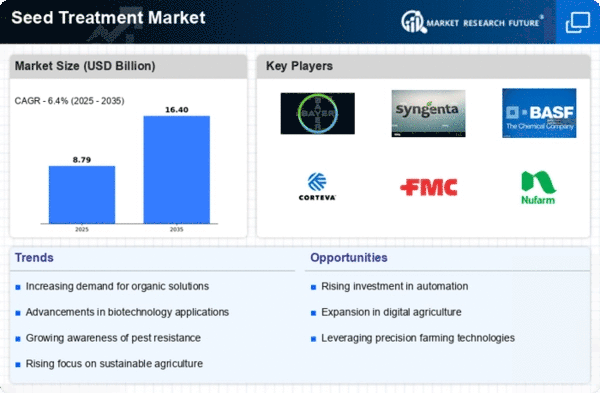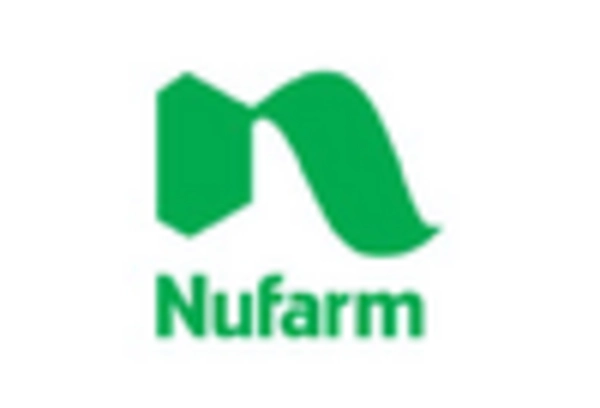Market Share
Seed Treatment Market Share Analysis
Significant seed treatment industry changes reflect changing global agriculture dynamics. Before sowing, seeds are treated with various compounds to improve performance and prevent diseases and pests. In this industry, seed treatments are becoming more important in contemporary farming. Farmers are using treated seeds for greater germination, seedling vigor, and crop establishment. Growing understanding of early-stage plant protection and the goal to enhance agricultural yields drive this trend.
The seed treatment business is increasingly influenced by sustainability. Seed treatment options that reduce environmental effect are in demand as eco-friendly and responsible agriculture become more popular. Seed treatment companies are researching ecologically friendly, pest- and disease-fighting remedies. This change supports sustainable agriculture, which prioritizes chemical input reduction.
Farmers seeking to decrease their environmental impact choose these treatments over chemical ones. Increasing availability and efficacy of biological seed treatments drive market expansion in this sector.
Farmers embracing precision agricultural technology to maximize crop management are affecting the seed treatment business. Precision seed treatments for specific soil and environmental conditions are growing. These treatments follow the precision farming trend by protecting and optimizing seed performance. Precision seed treatments are predicted to improve agricultural output as technology advances in agriculture.
North America, Europe, and Asia-Pacific have intense agriculture practices, thus the seed treatment business is growing there. Improved agricultural yields and environmental risk mitigation enhance seed treatment demand. Emerging countries in Latin America and Africa are also driving market expansion as farmers employ improved seed treatment procedures to improve crop quality and production.
The seed treatment industry is competitive due to innovation and strategic partnerships. Companies are creating novel formulas and increasing their product ranges to meet different crop and regional needs. Advanced seed treatment options are being developed and promoted through research and agricultural partnerships.
In conclusion, the seed treatment market is undergoing a transformation due to the rise of biological seed treatments, precision agriculture, environmental sustainability, and modern agriculture. Effective and sustainable seed treatment technologies will remain in demand as farmers explore ways to enhance crop output and avoid hazards. The market's future promises innovation, collaboration, and seed treatment development that improves global agriculture's efficiency and sustainability.


















Leave a Comment